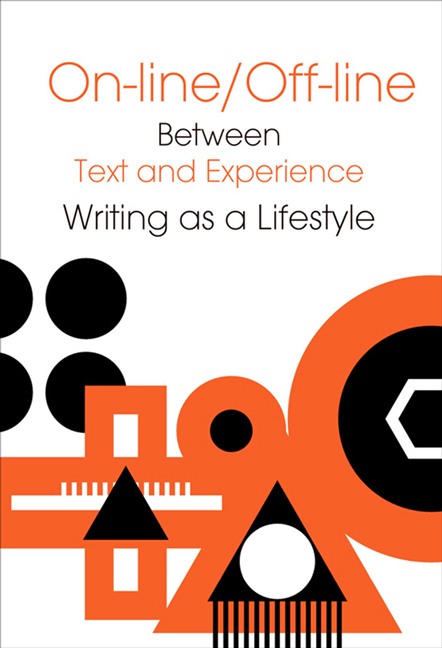Book contents
- Frontmatter
- Contents
- Editors’ Introduction
- ON-LINE/ OFF-LINE
- LITERATURE AND CONVERGENCE
- Poetics in the Age of Convergence
- Convergence and Communication: Genre Analysis of the websites of Polish Writers
- Towards a Generic Analysis of the Microblog (Based on a Study of Twitter)
- How Does the Hybrid Work of Art Exist?
- Liberature in Relation to the Reconfiguration of Aisthesis
- Literature in/of the City – Introductory Comments
- Literary Studies, History and Popular Culture – the Spaces of Convergence
- Afterpop: the Almost Perfect Convergence
- Transcultural Convergence? Polish Poets and Artists and the Oriental Verbo-visuality
- From an E-narrative Poem towards an Interactive Work of Art. Media Convergence Illustrated with DOWN by Zenon Fajfer and The Surprising Spiral by Ken Feingold
Literary Studies, History and Popular Culture – the Spaces of Convergence
from LITERATURE AND CONVERGENCE
Published online by Cambridge University Press: 12 January 2018
- Frontmatter
- Contents
- Editors’ Introduction
- ON-LINE/ OFF-LINE
- LITERATURE AND CONVERGENCE
- Poetics in the Age of Convergence
- Convergence and Communication: Genre Analysis of the websites of Polish Writers
- Towards a Generic Analysis of the Microblog (Based on a Study of Twitter)
- How Does the Hybrid Work of Art Exist?
- Liberature in Relation to the Reconfiguration of Aisthesis
- Literature in/of the City – Introductory Comments
- Literary Studies, History and Popular Culture – the Spaces of Convergence
- Afterpop: the Almost Perfect Convergence
- Transcultural Convergence? Polish Poets and Artists and the Oriental Verbo-visuality
- From an E-narrative Poem towards an Interactive Work of Art. Media Convergence Illustrated with DOWN by Zenon Fajfer and The Surprising Spiral by Ken Feingold
Summary
Abstract
The aim of the article is to juxtapose literary studies, literature and history as neighboring branches of humanistic knowledge. The author compares the methodologies of history and literary studies in the field of narrativity, and, in accordance with Hayden White, comprehends history as a type of fiction, historio-graphia, and literary artifact. In this optics historiography and literary studies are diagnosed as forming a sisterhood relation-ship. When the opportunity arises it is shown that the idea of postmodern history is no novelty, since up until the decline of the XVIIIth century history and literary studies have not been opposite at all.Actually, the way of thinking about history as an (literary) art has a splendid tradition rooted in antiquity. In the scope of Braudel`s history of the “longue durée” it is the model of history as a (hard) science separated from literary studies as an art and ideographical science that constitutes a methodological aberration. Comparative analysis leads to the conclusion, that both these “scientific” branches developed almost simultaneously (cf.feminism, gender, postcolonialism, posthumanism, animal studies).Moreover literary genres, such as the (post)modern historical novels, alternate histories or historical fantasy, opened the space of convergence between history and the literary, because of mutual fluctuation and the “parasiting” of ideas, topics and poetics. The par-ticipation of popular culture makes the history and literary studies more transgressive, widely open for contemporary forms of communication and more hearable.In this scope, the author presents historical game books, facebook`s historical events, transmedia his-torical stories.
Key words: Literary studies, historio-graphia, popculture, (post)modern historical novels, alternate histories, historical fantasy, new forms of communication
Introduction
Literary and historical studies, ones of the most important and at the same time, neighboring branches of humanistic knowledge, have stayed in close and multilevel contacts from their origins. Their relations could be described as a sisterhood; therefore, it is no wonder that they went through stormy quarrels, hysterical separations and affectionate re-unions… Nowadays, when thanks to deep and various changes in hu-manistic, both literary and historical studies became not even an inter- but a transdisciplinary, holistic science about the human being, it has become obvious that they could be closer than ever before. The narrative turn made historians understand that history as the rerum gestarum is sub-jected to the same creational and interpretational principles as literature stricto sensu.
- Type
- Chapter
- Information
- On-line/Off-lineBetween Text and Experience: Writing as a Lifestyle, pp. 293 - 320Publisher: Jagiellonian University PressPrint publication year: 2016

